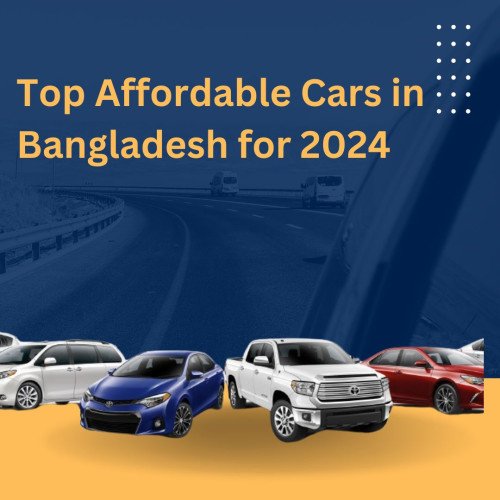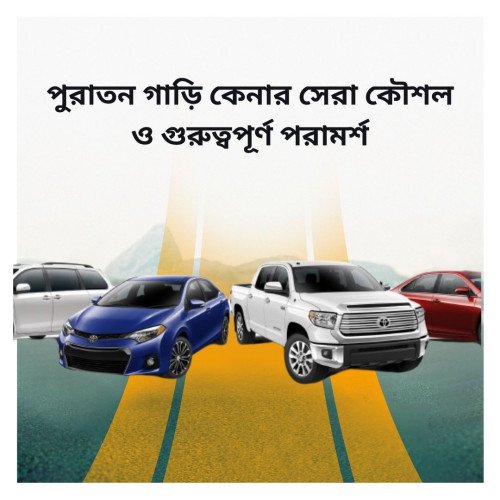Hybrid vs Electric Cars in Bangladesh: Are They Worth It?

In recent years, hybrid and electric vehicles (EVs) have made a significant mark globally, promising cleaner, more efficient transportation. As countries strive to reduce carbon emissions, these eco-friendly cars are increasingly becoming popular. But in Bangladesh, a country with unique challenges in infrastructure, road conditions, and public awareness, the question arises: Are hybrid and electric cars really worth it here?
Let’s dive into the pros and cons, the current market landscape, and what the future holds for hybrid and electric cars in Bangladesh.
What Are Hybrid and Electric Cars?
Before we explore their worth, let’s understand the difference between hybrid and electric cars:
-
Hybrid Cars: These vehicles use a combination of a traditional internal combustion engine (ICE) and an electric motor. The electric motor assists the engine to improve fuel efficiency and reduce emissions. Hybrids don’t require external charging since they recharge their battery through regenerative braking and the engine itself.
-
Electric Cars (EVs): Electric cars run purely on electricity stored in rechargeable batteries. They need to be charged using external sources like home charging units or public charging stations. EVs produce zero tailpipe emissions, making them the greenest option available.
The Current Market for Hybrid and Electric Cars in Bangladesh
The automobile industry in Bangladesh has been growing, but it’s still largely dominated by traditional petrol and diesel vehicles. However, with the rising global emphasis on sustainability, hybrid and electric cars have started gaining traction.
Hybrid Cars in Bangladesh
Hybrid cars have a relatively better standing in Bangladesh compared to EVs. Some popular hybrid models, such as the Toyota Prius and Honda Vezel, are available in the Bangladeshi market. These cars are seen as a practical step towards reducing fuel costs without relying entirely on electric charging infrastructure, which is still in its infancy.
Electric Cars in Bangladesh
While electric cars have become a hot topic globally, their adoption in Bangladesh is still in its early stages. Some manufacturers like Nissan Leaf and BMW i3 are available in the market, but they are rare and often considered luxury vehicles.
The primary hurdle is the lack of charging infrastructure. Though there are a few charging stations in major cities like Dhaka and Chittagong, it’s still not enough to support mass adoption. Without a reliable and widespread charging network, many potential EV buyers remain hesitant.
Benefits of Hybrid and Electric Cars in Bangladesh
Despite the challenges, hybrid and electric cars offer a range of benefits that make them worth considering:
1. Fuel Savings
- Hybrids: With fuel prices constantly rising, hybrids provide an excellent middle ground. Since they rely on both gasoline and electric power, they offer significant fuel savings, especially in city traffic where electric motors can take over at low speeds.
- EVs: Electric cars eliminate the need for gasoline entirely, which means no more trips to the petrol pump. For those who can access home charging, this can lead to substantial cost savings over time.
2. Lower Emissions
- Both hybrids and electric cars produce fewer emissions compared to conventional vehicles. EVs, in particular, produce zero tailpipe emissions, contributing to cleaner air and a reduced carbon footprint. In cities like Dhaka, where air pollution is a growing concern, this can have a significant environmental impact.
3. Tax Incentives
- The Bangladeshi government has shown some interest in encouraging greener vehicles. In recent years, they have reduced import duties on electric and hybrid cars. This can make them a more affordable option compared to their conventional counterparts.
4. Future-Proofing
- As global trends shift towards renewable energy and sustainability, countries worldwide are phasing out internal combustion engines. Investing in a hybrid or electric vehicle now could future-proof your transportation as Bangladesh aligns with global emissions standards in the future.
Challenges of Owning Hybrid and Electric Cars in Bangladesh
While the advantages are clear, there are some significant hurdles that need to be addressed:
1. Lack of Charging Infrastructure
- For EV owners, one of the biggest challenges is the lack of charging stations. Although major cities like Dhaka have a few public stations, they are far from sufficient to support large-scale adoption. This makes owning an electric car outside of urban areas particularly difficult.
2. High Initial Costs
- Hybrid and electric cars are generally more expensive than traditional cars. Despite tax reductions, many of these vehicles remain outside the budget of average buyers in Bangladesh. Additionally, imported cars can be costly due to shipping and other associated fees.
3. Limited Choices
- The Bangladeshi market doesn’t have a wide variety of hybrid and electric car options yet. This means buyers may have to settle for limited models or look into importing vehicles, which comes with added costs and complications.
4. Battery Concerns
- For electric cars, battery life is a concern. Replacing a battery can be costly, and given the hot and humid climate in Bangladesh, the wear and tear on batteries might be faster than in cooler regions. Hybrid vehicles also face battery replacement costs, though they are less dependent on the battery than fully electric cars.
Are Hybrid and Electric Cars Worth It in Bangladesh?
Ultimately, whether hybrid and electric cars are worth it in Bangladesh depends on individual needs, location, and budget. For those living in major cities, where fuel prices are high and pollution is a concern, hybrids can offer a more fuel-efficient and eco-friendly option. They are also better suited to the current infrastructure, as they don’t rely on external charging stations.
Electric cars, while promising in terms of sustainability, still face significant hurdles. The lack of widespread charging infrastructure and high initial costs mean that EVs may not yet be the most practical option for many Bangladeshi drivers. However, as the government invests in greener technologies and infrastructure, the situation may improve, making electric cars a more viable option in the future.
Looking Ahead: The Future of Green Vehicles in Bangladesh
As Bangladesh continues to grow economically, there is potential for greater adoption of hybrid and electric vehicles. The government’s efforts to reduce taxes on green cars and the ongoing global push for cleaner energy sources signal that the market for hybrid and electric cars will likely expand.
For now, hybrids seem to be the most practical option for Bangladeshi drivers looking for fuel savings and lower emissions. Electric cars, while still limited by infrastructure, represent the future, and as technology improves, we may see a shift in favor of EVs over the next decade.
So, are hybrid and electric cars worth it in Bangladesh? Yes, but with caution. Hybrids offer a practical middle ground for today, while electric cars hold promise for tomorrow’s roads.
By providing an honest analysis of both the benefits and challenges, this article can help your readers make an informed decision about whether hybrid or electric cars are right for them in Bangladesh.




